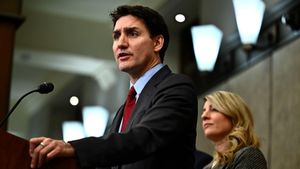VITERBO – The controversy surrounding Michela Vittoria Brambilla, the founder and president of the Italian Animal Defense League (LEIDAA), has escalated following allegations of financial misconduct revealed by the investigative program Report. Brambilla, who has long been hailed as a champion for animal rights within Italian politics, now faces accusations of misusing funds meant for animal welfare for personal and political purposes.
Within the political sphere, Brambilla was initially supported by Silvio Berlusconi and the Forza Italia party when she launched the nascent Animalist Movement back in 2017. With apparent support from Berlusconi, Brambilla's efforts sought to merge her passion for animal rights with political activism. Yet, recent reports have painted a starkly different picture, especially concerning her relationship with LEIDAA.
On February 2, the program aired startling revelations about LEIDAA's financial practices, showing misuse of state and private donations. Report implied more than €600,000 had been spent on events, luxury accommodations, and questionable political expenses. While Brambilla positioned herself as solely focused on animal welfare, evidence mounted showing significant overlaps between her political ambitions and LEIDAA's expenditures.
Critically, the investigation detailed nearly €500,000 received from the National Italian Dog Federation (ENCI) to support Brambilla's television program, Dalla parte degli animali, which is thought to run on public funds even after losing traction and viewership following Berlusconi's passing. Critics highlighted the controversy as indicative of egregious conflicts of interest, as Brambilla, simultaneously acting as both hostess and advocate for animal rights, was being supported financially by entities whose goals contradicted her public agenda.
Among specific allegations raised, Report noted payments for luxuries aligned closely with Brambilla’s lifestyle, including high-end vehicles, expensive wines, and stays at luxurious hotels. One invoice reportedly documented €2,550 spent on wine and another €488 for tree trimming services for her personal residence — expenditures quite removed from LEIDAA’s purported mission.
Meanwhile, Brambilla's parliamentary history reveals her deep-rooted involvement with animal welfare causes, concurrently creating multidimensional tension between her roles as politician, celebrity, and suspected misuser of funds. Such allegations threaten to erode the public’s trust not only toward her but also toward other non-profit organizations aiming to protect animal rights.
Calls for accountability mount, particularly with regard to transparency within the non-profit sector. Experts have warned against the risks associated with poor financial governance, asserting the high stakes involved — such as siphoning donations meant for genuine animal welfare initiatives.
Brambilla, responding to the allegations, dismissed them as routine political attacks faced by her party. "These claims are simply the same political attacks the majority endures daily. They seek to discredit our efforts for animals under false pretenses,” she asserted during her appearance on Report.
The wide-ranging impacts of these allegations carry weight both politically and socially, as donor confidence diminishes. Citizens advocating for animal welfare are understandably disconcerted over the apparent misallocation of funds intended for those very causes. Sara Turetta, president of Save the Dogs and Other Animals, expressed her fears about how this scandal might shake donor confidence across the animal rights spectrum. Indeed, many organizations within the sector have been plagued by questions of integrity and have been rightly criticized for their transparency.
For advocacy organizations, the implication resonates: there must be rigorous standards of accountability to prevent cases like Brambilla’s from becoming the norm. Transparency not only safeguards the future of animal welfare financing but also precludes misappropriation of sensitive donor funds.
Critically, the fallout from the Report investigation suggests the necessity for distance between personal and organizational finances, demanding clear delineation to help reestablish faith within the community. Whatever the ultimate conclusion of this scandal, the need for consistent ethical governance within Italy’s non-profits is now more evident than ever before.



